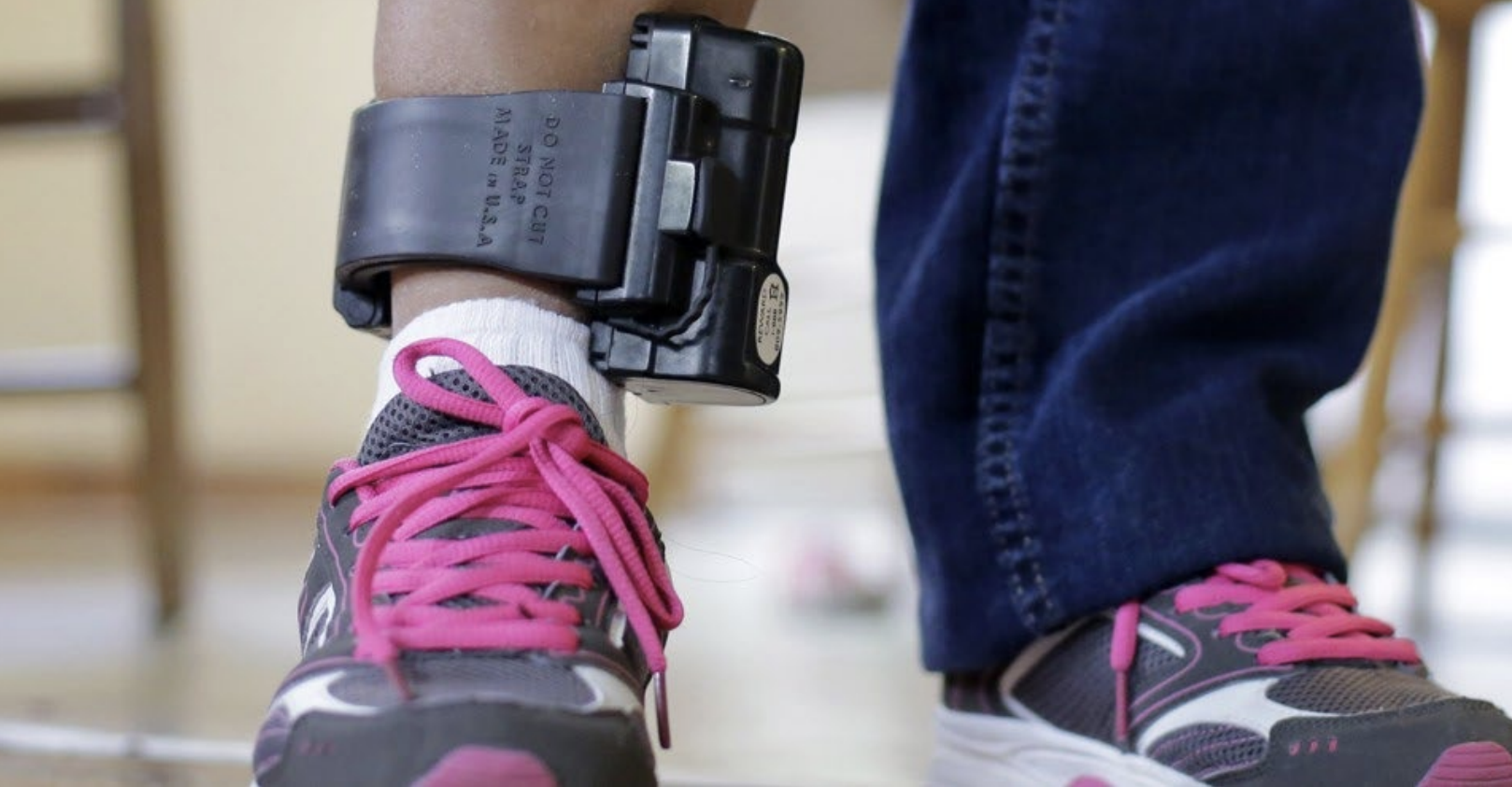A new American Civil Liberties Union report on electronic monitoring (EM) lays out a blueprint for reducing systemic harms created by the practice, with the goal of abolishing it entirely.
“Rethinking Electronic Monitoring: A Harm Reduction Guide” published September 29, discusses how ankle monitors and other GPS surveillance technology increase mass incarceration. Many people on EM are re-incarcerated for technical violations, meaning they didn’t meet a condition of their probation or parole. This could mean being a single minute late when coming home from work, or not being able to afford the overwhelming fees.
“Governments should not ask people to choose between a physical and electronic cage or between a deprivation of their right to liberty and their right to privacy,” the report states. “Rather, governments should make all efforts to keep people in their communities with as few restrictions on their liberty as possible.”
Many of the people surveilled with EM have not been convicted of a crime, including an estimated 30,000 immigrants detained on any given day.
Governments and private companies may charge people hundreds of dollars a month to pay for their ankle monitors, phones and other EM-related costs like WiFi. According to the report, this can be up to $47 per day, which means up to $17,155 a year.
In addition to being inhumane, EM is ineffective.
“[S]topping at a neighborhood grocery store does not necessarily pose public safety concerns nor correlate to court appearance,” the report reads, “but can lead to incarceration if it exceeds an individual’s allotted movement hours … taking out the garbage or chasing after an escaping pet dog can result in jail or prison time.”
In addition to being inhumane, EM is ineffective. Evidence-based alternatives for ensuring people show up to court include simply reminding them of their court dates and providing transportation, and childcare if needed.
Governments should abolish the practice of reincarcerating people on technical violations, the report argues, and cover the costs of EM and associated technology like WiFi. No one should be confined to their residence, and everyone guaranteed at least 12 hours of mobility for recreational purposes and six to 12 hours for work purposes.
Further, they should abolish contracts with private technology companies that are “directly incentivized to take advantage of people.” The daily fees people pay for their ankle monitors and other EM technology often goes to private companies, not the government.
Photograph via Michigan Courts





Show Comments